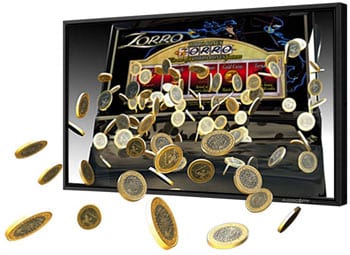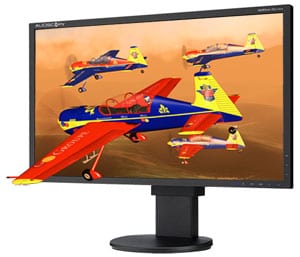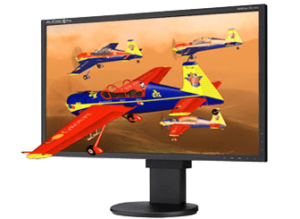-

Alioscopy 3D Software
Alioscopy offers all customers software to mix content and to play it back on the displays. Every display... -

Alioscopy Glasses-Free 3D Displays
Alioscopy glasses-free 3D displays (auto-stereoscopic 3D screens) show three-dimensional images instantly, without requiring specific eyewear. The sensation of...
Alioscopy Glasses-Free 3D Displays
Alioscopy glasses-free 3D displays (auto-stereoscopic 3D screens) show three-dimensional images instantly, without requiring specific eyewear. The sensation of depth is natural and immediate: it amazes, captivates the audience and retains their attention. Out-of-Home communication can now use the striking impact of 3D, for digital signage, advertising, marketing or special events. 3D also enhances the understanding of complex data and professional imaging can now benefit from the same technology.
- Instantly
Alioscopy 3D displays are fitted with a high precision lenticular lens, displaying different images for each eye. Stereo eyewear generally needed when watching 3D movies are not required anymore. Viewers are relieved from cumbersome glasses, isolating them from the environment and preventing eye contact. 3D is seen naturally! - Simply
Unlike 3D films made for the cinema or stereoscopic televisions operating with glasses, Alioscopy 3D displays require proprietary content combining not just 2, but 8 discrete images. Some models require only 5. Viewers may stand freely in front of the display and move sideways to enjoy the 3D scene from slightly different angles. - Broadly
Alioscopy 3D displays can be considered as windows opening on a three-dimensional world. They can display broad scenes with mesmerizing pop-out and depth effects. They can embrace a global depth span in and out of the display equal to its width, and occasionally show much broader scenes when content is well suited. - Comfortably
Depending on their size, Alioscopy 3D displays can be viewed in good conditions by an audience of 20 to 50 people spread over an area of 90°, providing viewing distances are respected. A narrow transition zone where the 3D effect seems blurred occurs every 50 cm. All it takes is to step slightly aside to find a sweet spot again, with natural depth sensations. - 2D/3D Compatibility
Alioscopy 3D displays can show 2D content as well as proprietary 3D content mixing multiple views. This backwards compatibility gives you flexibility in use to push 2D, 3D or a combination of both.

Alioscopy 3D HD 42″S
 Alioscopy 3D HD 24″
Alioscopy 3D HD 24″
A display range meeting every need
Alioscopy 3D displays are available in different sizes, resolutions, orientation and viewing distances (LV, SV et SW).
Full HD [1920×1080] – 21.5″, 24″, 42″, 47″ & 55″
WQXGA [2560×1600] – 10.1″
Ultra HD [3840×2160] – 31.5″, 65″, 84″
How to choose the appropriate Alioscopy 3D display?
Alioscopy has three display ranges:
- The LV range (Long View) consists of displays that can be seen from far away and producing a broad 3D sensation. They are generally intended for digital display purposes in public premises.
- The SV range (Short View) consists of displays ideally seen from closer by. They create a more intimate relationship with the image. When showing identical content, SV displays will produce a milder 3D sensation than LV displays of equivalent size. This is a psychophysiological effect. In order to recover the sensation offered by the LV range, all it takes is to create content with a larger stereo base.SV displays come in classic 8 viewpoints models, but also in 5 viewpoints models. The later can display sharper images because the resolution per viewpoint is higher. There is a trade-off though and the number of users who can watch the displays simultaneously is reduced. They are commonly used in professional real-time 3D imaging applications, where sharpness is of the essence (medical, CAD). The virtual camera model is calibrated to fulfil an orthoscopic sensation.
- The SW range (Short View double base) also consists of displays ideally seen from closer by, but unlike the SV range, the optical components produce a 3D sensation analogue to LV displays of matching size. To achieve this, the lenses have been modified to present images to the eyes not belonging to adjacent viewpoints, as is usually the case, but skipping one viewpoint in between. It is no longer necessary to change the camera model, which matches the one designed for LV displays. Consequently, the angle of continuous 3D (sweet-spot) is twice narrower. These displays are very convenient for graphic designers, since they reproduce the same 3D sensation as on the displays belonging to the LV range.
Alioscopy Products

